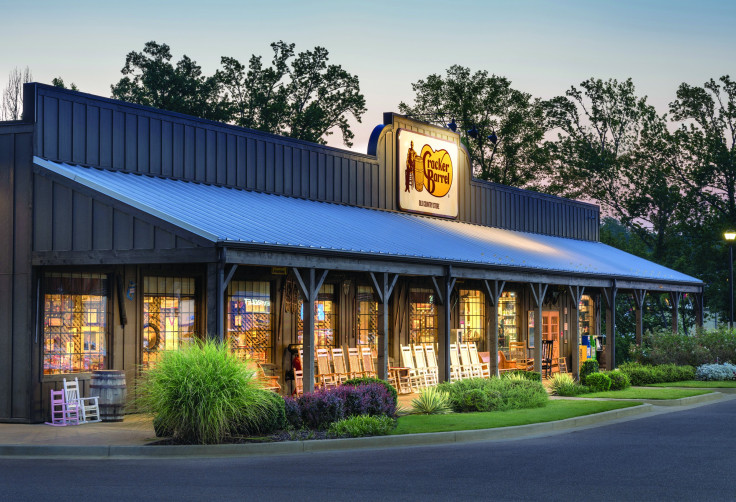No, 'Cracker Barrel' Is Not A Reference To Slavery, As Twitter Suggests
A thread on the popular social networking site Twitter alleges the name and logo of restaurant chain Cracker Barrel is laced with racist references. A close look at history suggests that’s not the case, though there is a history of discrimination.
A Twitter user with the handle DOMODADONN posted an image online suggesting part of the script that makes up the logo is reminiscent of a whip.
“Cracker was a slang term for whip. That’s why Blacks called whites crackers, from the crack of the whip,” the caption reads. “A cracker barrel is a barrel that held the whips for sale at the country store.”
That thread was heavily trending online on Tuesday.
When you walk in there it gives racist vibes ____ https://t.co/pXxs40e9V8
— Fiarahh ❤ ️ (@fiarahh) February 8, 2021
I remember when I started working there and during my orientation this old white man said “you know why they call it CRACKER barrel don’t you” _ https://t.co/YdeY7Tt8lM
— Court ☯ ️ (@courttneyy78) February 8, 2021
But an article in the magazine “Summer Living” from 2018 tells a different story. That narrative holds that cracker barrels in fact held just that; crackers, the crispy wafers made of flour.
“The phrase ‘cracker-barrel’ was inspired by the barrels full of soda crackers that were for sale in the country's country stores,” the article reads.
A dictionary of etymology, a study of the origin of words, finds the term “cracker” as a derogatory term for Caucasians surfaced around the mid-1700s, when it was used to describe someone prone to boasting.
Merriam-Webster's dictionary defines “cracker-barrel” as an adjective that came into usage perhaps in the early 1900s as a synonym for “folksy.”
“That's why the logo tells the store's origin story and the history of its traditions,” Southern Living explained. “Take a look—the figure sits in a rocking chair and leans on a barrel that's presumably filled with those eponymous crackers.”
The allegations of racism, however, are not entirely unfounded. The first Cracker Barrel was opened in 1969 by Dan Evins, who worked at Shell Oil in Tennessee. His uncle, Joe L. Evins, was a Democratic congressman in the state who voted against various civil rights bills in the 1950s and 1960s.
The Department of Justice, meanwhile, settled with Cracker Barrel in 2004 after the company was charged in several southern states with discriminating against minorities.
“Where we find evidence, as we did here, that individuals of any race are receiving anything less than full and equal access to public accommodations, we will act,” said R. Alexander Acosta, Assistant Attorney General for the Civil Rights Division.
But the logo itself, as well as the name of the company, do not have racial overtones, as users online suggested.

© Copyright IBTimes 2024. All rights reserved.





















